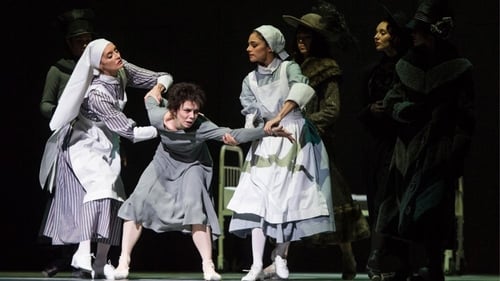
Music
Royal Ballet Principal Natalia Osipova dances the title role in Kenneth MacMillan’s haunting ballet, to atmospheric music by Tchaikovsky and Martinů. Anastasia tells the story of Anna Anderson who, following the Russian Revolution and the murder of the royal family, claimed she was the surviving Grand Duchess Anastasia. Many believed her to be an imposter; others hoped she was Anastasia, a remnant of a lost world. A powerful, psychological challenge for the lead dancer, Anastasia explores one of the great historical mysteries of the 20th century, only recently solved, and the distorting mirror of memory, time and place.

Original Music Composer
The Opening of the Wells with music by the Czech composer, Bohuslav Martinu was supposed to be part of Laterna Magika II.: Tour programme in 1960. However, it was banned by the communist committee tasked with judging the performance from “a politically correct” point of view. The committee claimed that Radok’s manners and morals were behind the times, and that the director did not show the ultra-modern techniques of Czechoslovakian agriculture. The premiere was postponed and Radok was fired from the Laterna Magika Theatre. His young colleagues (including Milos Forman) were officially asked to finish the rehearsals without the controversial part, and to make other minor changes in other scenes (these changes were made). Alfred Radok considered this to an unforgivable betrayal, as he expected them to leave the theatre to support him.

Original Music Composer

Original Music Composer
“The Carpathians are medieval!” one character bellows, and this tale of the tree-chopper Petro, his faithless wife Marijka, and various scheming businessmen and foremen does little to disprove the assertion. Interestingly filmed with a nonprofessional cast recruited from the region, Faithless Marijka may have a neorealist conceit, but its direction is utterly futuristic, filled with the lightning-fast montage techniques and low-angle camera of the Soviet avant-garde (along with its invigorating agitprop).


